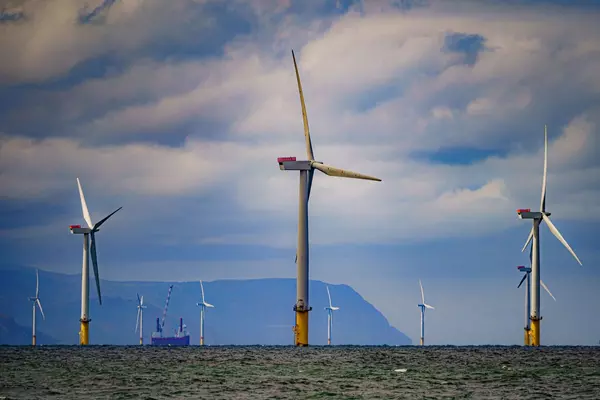
Gaby Hinsliff, The Guardian.
Abundance is Rachel Reeves’s summer beach read, and with its optimistic ideas about energy and housing, it shows the left a possible way forward.
Sheer joy. That’s how it felt watching England’s Lionesses romping gleefully across the pitch after their victory in Basel – not just because they won but because of the way they did it, with an exuberance and a resilience and an obvious love of playing together that makes them irresistible to watch. That 65,000 people came out in the drizzle for their homecoming parade down the Mall was testament not just to the deserved new popularity of women’s football but also to the longing for a national event that, even if only briefly, made us feel cheerful, expansive, as if all things were possible.
So it’s interesting that for her summer beach reading Rachel Reeves picked Abundance, the American journalists Ezra Klein and Derek Thompson’s blueprint for the more permanent rebuilding of hope and joy. It’s a pro-growth, techno-optimist rallying cry for progressives to reinvent themselves as purveyors of plenty and good times in contrast to the right’s crabby, mean-spirited “scarcity mindset” – which revolves around the belief that there isn’t enough good stuff to go round and therefore the priority is snatching it back off immigrants or the poor or whatever bewildered former ally Donald Trump accuses of ripping America off.
Klein and Thompson argue convincingly that for decades western consumers have been fobbed off with an abundance of stuff we fleetingly want – fast fashion, cheap flights, more streamed content than anyone has time to watch – but a paucity of stuff we actually need, such as affordable homes near where the good jobs are, or cheap green energy. Where the authors will divide the room, however, is by claiming that’s partly down to years of liberal politicians attaching well-meaning strings to public building projects, from environmental protections to procurement rules to US zoning laws for housing, which although noble in intent collectively make it impossible to build. It was Reeves’s jolting recent description of red tape as a “boot on the neck” of business that first made me wonder if she’d read the fervently deregulatory Abundance. Though it focuses on the California housing crisis, there are enough relatable stories – the nimby neighbours fighting affordable homes because they’d prefer more car parking, or the decades wasted failing to build a high-speed rail link between Los Angeles and San Francisco – for it to have done the rounds at Westminster and among Australian progressives too.
Like all snappy bestsellers, it’s sometimes glib. Klein and Thompson talk a great game about facing up to reality – if you can’t have speedy housebuilding and generous protection for bat and newt habitats, say, which do you want most? – yet place enormous faith in the magical ability of still-unproven technologies to solve problems without creating new ones. Their vision of a utopia involving driverless cars, lab-grown meat and bounteous vegetable crops from so-called vertical farms (essentially giant greenhouses powered by renewable energy) would sound more convincing if it weren’t for horror stories about autonomous driving or the struggle to make vertical farming remotely viable in Britain. But there’s something undeniably appealing at its heart.
Plenty is an innately American idea, at home in the land of bottomless refills and vast open skies and permanently reaching after more, bigger, better. But from a British left perspective, what’s interesting is its relationship with altruism. Scarcity makes people selfish, anxious, distrusting of others and prone to hoarding whatever they’ve got: think of shoppers fighting over loo rolls in lockdown. But in times of abundance, we relax, becoming more generous.
Klein and Thompson’s proposals for a 21st-century era of plenty – build lots of affordable housing and prioritise super-cheap clean energy to lower household bills and unleash industrial innovation – aren’t exactly revelatory to a Labour government already committed to most of this (though in Britain some might add the need to reform an electricity market where prices are still artificially pegged to gas). What Labour hasn’t yet nailed, however, is the emotional framing that turns rather worthy but dull-sounding infrastructure projects into the genuinely exciting makings of a better life.
Somewhere in abundance theory are the glimmerings of a story that brings together otherwise disparate policies and people. What Ed Miliband and Angela Rayner, the two natural abundance politicians on the cabinet’s soft left, share with those on the technocratic right like chief AI cheerleader Peter Kyle, is mostly a mindset: an ebullience, an enthusiasm, and a refusal to see everything as hopeless that matters to progressive parties, because they’re in the business of hope. Never more so, arguably, than when the right is deep in the business of doom.
Nigel Farage’s great appeal to his followers used to be the fact that he liked a drink and a laugh; that he was so obviously enjoying himself. But lately his party has begun to sound bitter, nihilistic, oddly hysterical. Claiming that Britain is on the verge of societal collapse plays well on X, already awash with nonsense about no-go zones in Birmingham and civil war in Europe, but perhaps less well in daylight. Britain has big problems, many of them deep seated. But it’s still a country where people wash their cars in suburban driveways on a Sunday afternoon, not a post-apocalyptic wasteland where we’re all one step away from barbecuing rats for supper. There’s undeniably a market for politicians wallowing angrily in dreams of a better yesterday. But I suspect there’s still a bigger one, out there in the rain, waiting to catch sight of a better tomorrow.





